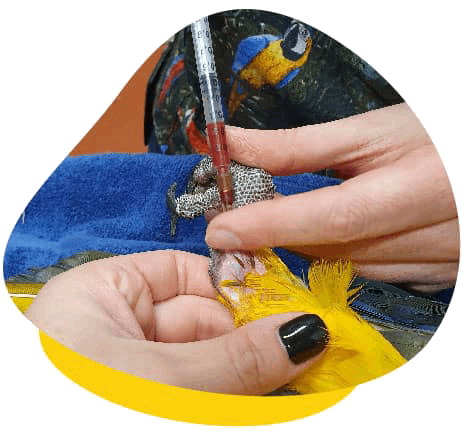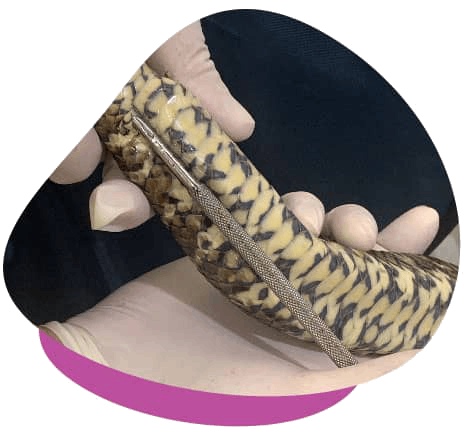
Sexing Birds
Knowing a bird’s sex is beneficial for many reasons including managing behavioural and medical issues, particularly those involving the reproductive tract.
We recommend the use of DNA sexing for avian species as it is a safe, minimally invasive method that provides accurate results. It involves us collecting a blood sample placed on a filter paper and then sending that off to an external lab for analysis.
Endoscopic sexing (otherwise known as surgical sexing) is also an option however it is more invasive as well as costs more so isn’t used as commonly anymore.

